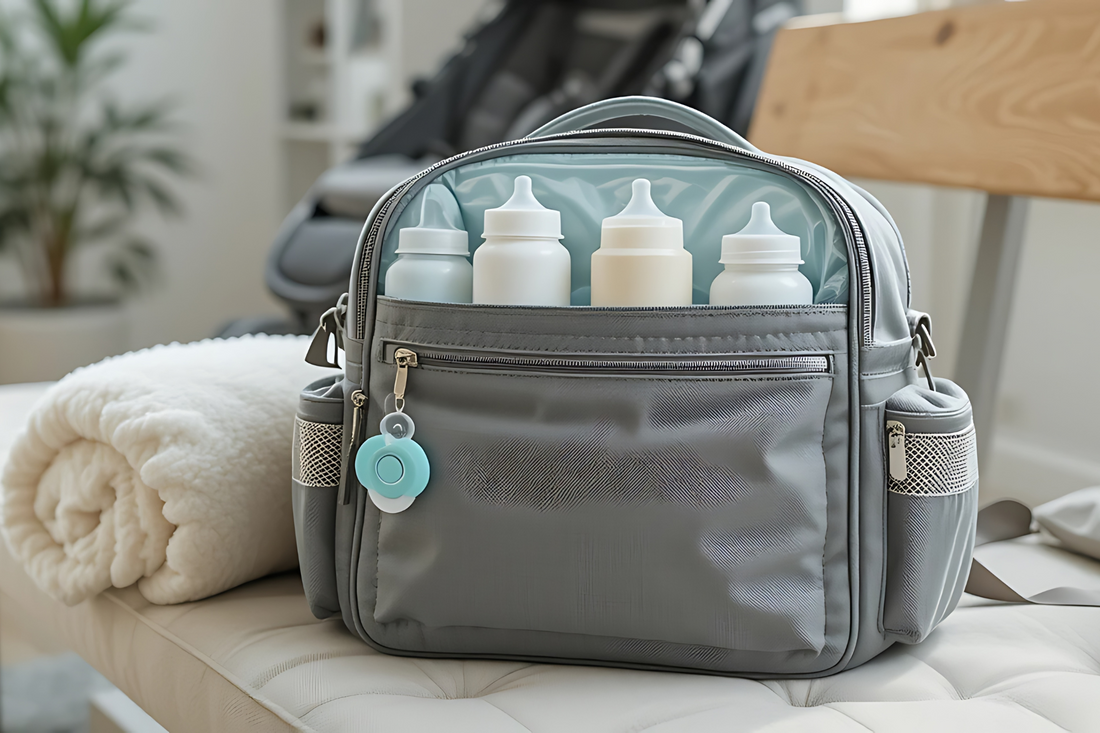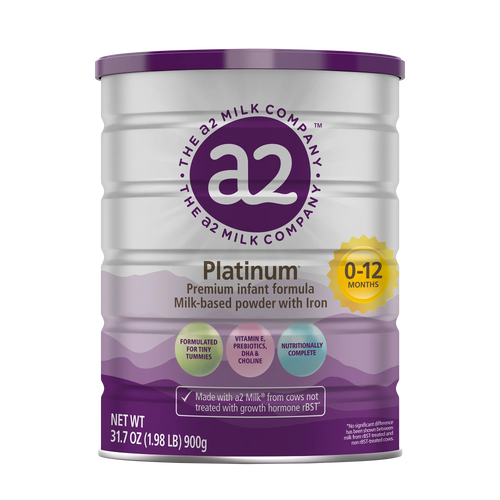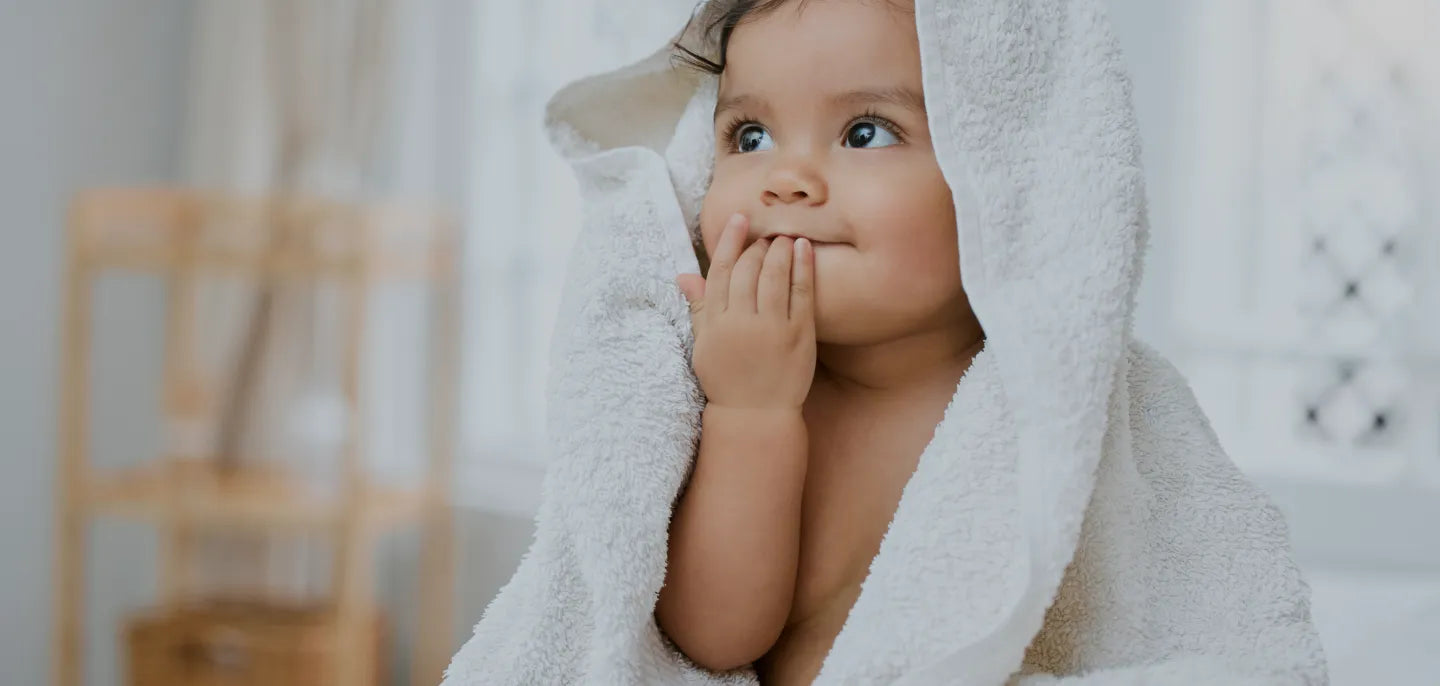How To Travel with Baby Formula
Reviewed by: Julie Ruelle, RD, LD
Picture this: You're standing at the security checkpoint, beads of sweat forming as you juggle your squirming baby, a mountain of carry-on bags, and the nagging fear that your precious formula might be confiscated. Sound familiar? As any seasoned parent will tell you, traveling with an infant and formula can feel like orchestrating a complex military operation—except your tiny commanding officer needs feeding every few hours, no matter where you are.
But here's the good news: With the right knowledge and preparation, you can transform this potential nightmare into a manageable adventure. Whether you're planning a weekend at grandma's or an international excursion, mastering the art of traveling with baby formula can make the difference between stressed-out chaos and confident exploration. Your baby's nutritional needs don't take a vacation, but that doesn't mean you can't enjoy yours.
Essential Formula Travel Gear for Parents
Packing the right formula-feeding gear can make all the difference between a smooth journey and a stressful experience. Whether you're heading out for a quick day trip or embarking on a longer adventure, having the proper equipment ensures your baby's feeding routine stays consistent and hygienic. Here's your comprehensive checklist of must-have travel items for formula feeding:
Temperature Control & Storage
- Insulated bottle bag with ice packs (keeps formula safe for up to 24 hours)
- Optional - Portable bottle warmer (car adapter or battery-operated)
- Cooler bag for longer trips
- Digital thermometer to check the formula temperature
- Ice packs or gel packs (multiple)
Formula Preparation & Dispensing
- Pre-measured formula containers or dispensers
- Travel-sized formula cans (if using powder)
- Clean, translucent bottles (easier for security screening)
- Extra nipples in appropriate sizes
- Bottled water specifically for formula
Cleaning & Sanitizing Equipment
- Travel-sized bottle brush
- Gentle dish soap in travel container
- Sterilizing tablets
- Sanitizing wipes for surfaces
- Compact bottle drying rack
- Paper towels for quick cleanups
Organization & Storage
- Zip-top plastic bags (for separating clean and used items)
- Small container for used bottle parts
- Formula storage containers with tight seals
- Extra bottle caps and sealing discs
- Small travel bibs
Emergency Supplies
- Ready-to-feed formula bottles for backup
- Extra measuring scoop
- Formula sample packets (if available)
- Backup bottle brush
- Extra bottles beyond your usual needs
Once you've assembled your travel gear, the next priority is understanding how to maintain formula safety throughout your journey. Remember that proper temperature control and storage practices are vital, regardless of your mode of transportation. Take the time to familiarize yourself with each item before your trip.
Keep Formula Safe While Traveling
Maintaining the right temperature for your baby's formula during travel is crucial for their safety and well-being. According to the Centers for Disease Control and Prevention, prepared formula should never be kept at room temperature for more than 2 hours to prevent harmful bacterial growth. When traveling, pack your formula supplies in an insulated cooler bag with freezer packs or gel ice packs to maintain a consistent, safe temperature throughout your journey.
A high-quality insulated bag with multiple ice packs will keep prepared formula at the ideal temperature for up to 24 hours. Consider using a digital thermometer to monitor the temperature, ensuring it stays below 40°F (4°C). To maintain its quality and nutritional value, store powder formula in a cool, dry place away from direct sunlight and extreme temperatures.
Beyond temperature management, proper formula storage techniques are equally critical to preventing contamination and maintaining quality throughout your journey. Pre-portioning your formula powder into individual servings using clean, sterilized containers can make feeding time more convenient while traveling. Store pre-measured portions in airtight containers or small, resealable plastic bags to protect them from moisture and ensure easy access during feedings.
When preparing bottles on the go, always use clean water that meets safety standards for preparing infant formula. Remember that warm water helps formula powder dissolve better. You can also request hot water from flight attendants or hotel staff to prepare bottles safely.
According to FDA guidelines, never use a microwave to heat formula, as it can create hot spots that are dangerous. Test the temperature of warmed formula by placing a few drops on your inner wrist before feeding your baby.
With your gear ready and safety principles in mind, let's explore how to pack effectively for each type of travel. Your packing strategy will vary depending on whether you're flying, driving, or using public transportation.
Smart Packing for Different Travel Types
Road Trip Ready Solutions
While air travel demands compact, security-friendly packing, road trips offer more flexibility but require their own strategic approach to formula preparation and storage. When traveling by car, you have more room for equipment and can bring larger quantities of supplies. Pack an insulated cooler bag with ice packs to maintain the ideal temperature for prepared bottles, and store dry formula in a separate, moisture-free container.
Organization is key for successful car travel with formula. Create a dedicated feeding station within easy reach of the back seat, using a small caddy to keep bottles, formula, and cleaning supplies together. A portable bottle warmer that plugs into your car's power outlet can be helpful for longer journeys. Always pack extra bottled water and ensure you have a plan for bottle washing at your destinations or during extended stops.
Public Transport Preparation Tips
Unlike the freedom of car travel, public transportation necessitates an even more streamlined approach to formula packing that balances accessibility with portability. Before embarking on your journey via public transportation, consider these essential packing strategies:
- Consider a dedicated formula dispenser with multiple compartments for pre-measured portions
- Pack a small insulated bag with slim ice packs for keeping prepared bottles cool
- Include travel-sized bottle soap and portable sterilizing wipes
- Bring leak-proof bottles with secure caps and extra bottle liners
- If possible, pack ready-to-feed formula options for unexpected situations
When using buses, trains, or other forms of public transportation, simplicity and efficiency are key. Choose lightweight, unbreakable bottles that can withstand being jostled in transit, and pack everything in a bag that's easy to carry while managing other items. Remember to position your formula supplies where you can quickly access them without having to rummage through your entire bag.
While all travel requires preparation, air travel brings unique considerations, particularly when navigating security checkpoints with formula. Understanding your rights and the screening process can prevent delays and stress.
Know Your Airport Security Rights
Traveling with baby formula requires understanding your rights at airport security checkpoints. According to the Transportation Security Administration, formula and breast milk are considered medically necessary liquids and are exempt from the standard 3.4-ounce liquid restriction. You can bring these items in your carry-on bag, even if you're not traveling with your little one.
When going through security, you'll need to remove your formula containers from your carry-on bag for separate screening. The TSA agents may need to test liquids for explosives, but they should never ask you to open sealed containers or taste the formula. You have the right to request that officers use clean, disposable gloves when handling your items.
Smart Formula Packing For Security
To streamline your security experience, pack your formula supplies in clear, translucent bottles or containers. Store powder formula in its original container with the manufacturer's label clearly visible. If you're bringing pre-made formula, consider using clear plastic bottles that security officers can easily inspect without opening.
Pack your formula supplies in an easily accessible section of your carry-on bag. Group all your baby feeding items together in clear, resealable plastic bags to help security officers quickly identify and screen these items. Remember to inform the TSA officer at the beginning of the screening process that you're traveling with formula.
Here are essential tips to make your security screening process smoother:
- Use clear, factory-sealed bottles or containers for easier inspection
- Keep formula in its original packaging with labels intact
- Pack formula items together in clear, resealable bags
- Alert TSA officers about your formula before screening begins
- Allow extra time for potential additional screening procedures
- Know that you can request alternative screening methods
Handling Additional Screenings
When traveling with formula, you might encounter additional screening procedures. TSA officers may use special test strips or ask you to swab the outside of containers—these are standard procedures to ensure safety. If you're uncomfortable with any screening method, you have the right to request alternative screening options.
When faced with additional screening, remain calm and cooperative while advocating for your needs. Remember that you can request a private screening area if you prefer more privacy during the process. Always keep essential formula supplies within reach during the flight, as you may not have access to your stored luggage during the journey.
Once you're comfortable with domestic air travel, international journeys present additional complexities. Different countries have various regulations and availability of formula brands, making advance preparation even more crucial.
Preparing for International Travel
Planning ahead is crucial when traveling internationally with your baby's formula. International travel requires extra consideration for your little one's formula needs. Different countries have different regulations regarding the import of baby formula, and some may restrict certain brands or types.
Contact your airline and check the customs regulations for your destination country well in advance of your trip. Keep in mind that formula availability can vary significantly between countries, so researching local options is essential. When considering how much formula to bring, pack at least 1.5 times your normal formula amount to account for unexpected delays.
Smart Packing for Worry-Free Travel
Organization is key to maintaining peace of mind when preparing your formula for international travel. Pack your formula supplies in your carry-on luggage rather than checked bags to ensure you always have access to them. Consider using pre-measured formula portions in individual containers to make preparation easier during your journey. Always keep the original packaging to verify the product if needed by customs officials.
Creating a comprehensive packing strategy will help ensure you have everything needed for formula feeding while abroad. Here's a detailed checklist of essential items to pack for your journey:
- Formula Supply: Pack enough for the whole trip plus extra
- Feeding Equipment: Include multiple clean baby bottles, nipples, and a compact bottle brush for washing
- Storage Solutions: Bring resealable plastic bags and airtight containers for prepared formula
- Cleaning Items: Pack travel-sized bottle soap and sanitizing wipes for proper cleaning
- Documentation: Carry your pediatrician's note and any relevant customs paperwork
- Water Supply: Include bottled water specifically for formula preparation
Remember to check if your destination has reliable access to clean water for formula preparation. If not, plan to bring enough bottled water or consider purchasing it upon arrival. Having a solid plan for formula preparation and storage will help you maintain your feeding routine while traveling internationally.
Whether you're traveling locally or across continents, the principles of successful formula feeding remain consistent.
Traveling with Baby Formula Made Simple
Successfully traveling with baby formula requires three essentials: preparation, knowledge, and flexibility. By understanding TSA regulations, packing the right gear, and maintaining safe formula storage practices, you can keep your baby well-fed and happy throughout your journey.
Remember, you've got this! Whether navigating airport security or managing temperature control during a road trip, your confidence will grow with each successful feeding on the go. With these strategies in place, travel becomes an exciting adventure rather than a source of stress for you and your little one.
Visit a2 Platinum® for more feeding tips, expert advice, and first-year insights on infant nutrition.






